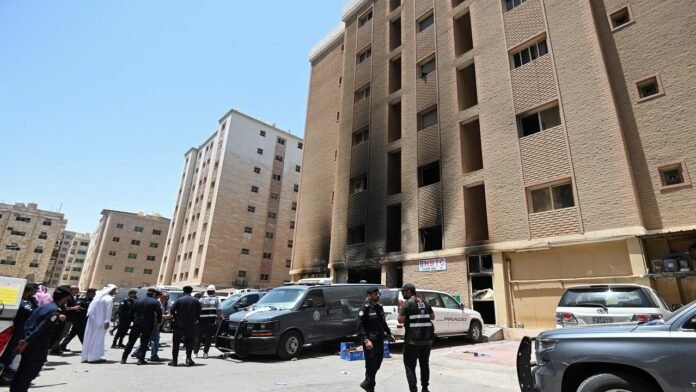Kuwaiti authorities are ramping up efforts to curb illegal property modifications in Kuwait, focusing on violations that endanger public safety and disrupt urban planning. Recent inspections reveal that basement misuse remains the most common offense, particularly in residential and investment buildings.
Municipal officials report that many property owners illegally convert parking basements into storage spaces. Ibrahim Ayad Al-Azmi from the Engineering Audit Department explained that these areas should serve residents for parking or building services. Instead, they often store furniture, chemicals, paints, and even perishable food without refrigeration.
Al-Azmi emphasized that illegal property modifications in Kuwait significantly increase fire hazards. Flammable materials like wood and chemicals create dangerous conditions. Last week, KTV footage showed a basement packed with construction supplies, including wooden panels and ceramic doors.
Suleiman Al-Otaibi, an engineer from Mubarak Al-Kabeer Municipality, warned that such storage obstructs firefighting efforts. Additionally, displaced vehicles clog streets and sidewalks, worsening traffic congestion. Al-Azmi noted that illegal parking forces traffic authorities to issue more fines, further straining resources.
Beyond basements, inspectors are tackling other illegal property modifications in Kuwait. Private housing zones, meant for single-family homes, frequently see unauthorized expansions. Some owners add extra floors or divide properties into rental units, often housing single male tenants—raising social and security concerns.
In Sabah Al-Salem, officials discovered a rooftop transformed into six makeshift apartments. Saqer Al-Enezi noted that older buildings often feature such illegal partitions made from lightweight materials. Meanwhile, investment properties face issues like unlicensed apartment constructions in parking areas.
The municipality collaborates with the General Fire Force to enforce compliance. Around 80% of violators correct issues immediately after warnings. The remaining 20% either seek permits or face forced removal of illegal structures.
Al-Azmi also highlighted another violation—private encroachment on government desert land for parking. Despite legal requirements for designated parking spaces, many investment properties fail to comply, forcing tenants to occupy public land.
Kuwait’s intensified inspections aim to restore safety and order. By targeting illegal property modifications in Kuwait, authorities hope to reduce fire risks, ease traffic congestion, and maintain urban integrity. Residents and investors must adhere to regulations or face penalties as the crackdown continues.


